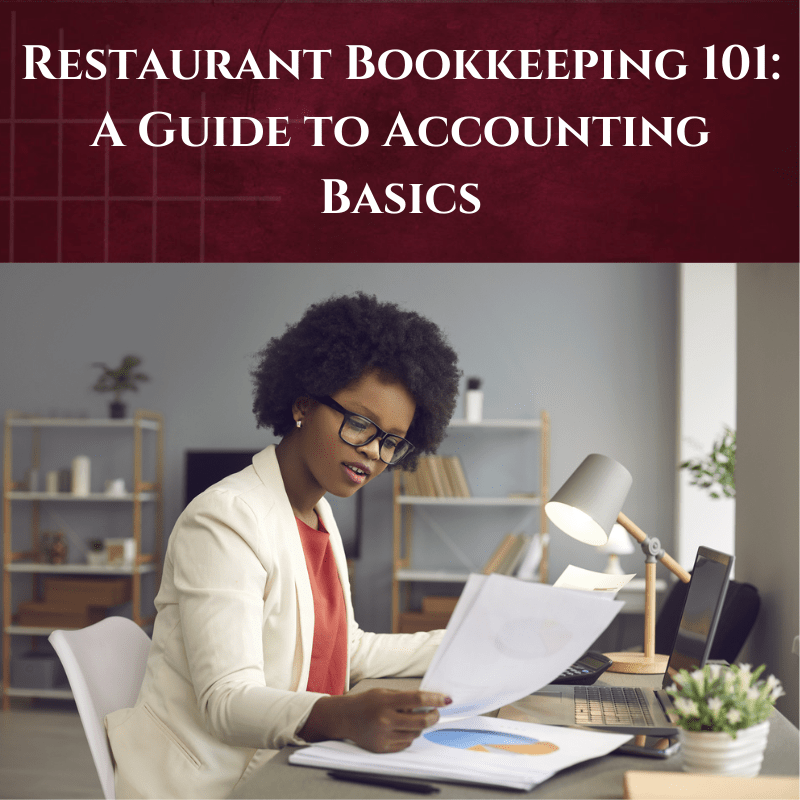Restaurant Bookkeeping 101: A Guide to Accounting Basics
Even the most experienced restaurants have trouble trying to decipher the language of bookkeeping. It can be intimidating with its moving pieces and complex practices. With tight profit margins, you never want to let your bookkeeping go by the wayside. If you don’t watch those financials, it could be too late to fix problems or straighten out your records. If you need help with your restaurant bookkeeping, take note of these accounting basics.
Good Accounting Starts With You
As a business owner, you need to handle your finances. Whether you outsource your accounting or manage finances by yourself, staying on top of those day-to-day chores is vital. With well-managed bookkeeping, you can stay ahead of those other restaurants and turn a profit with your business.
There are several ways to manage your bookkeeping. Whether you use small business accounting services or monitor them by yourself, here are a few tips to keep in mind.
Use POS To Record Daily Sales
The first basic step of bookkeeping is to record your sales. You can find many types of accounting software for your restaurant. These systems record the daily sales for each day. You can see when the cash and credit card sales hit your bank account with this information. Remember that it can be a few days before those credit card sales reach your bank. Once you analyze the timing of those funds, you can set up your bookkeeping system to mirror that schedule.
After you have the daily sales, set up a sales report. A daily sales summary is automatically built into many POS systems. However, you can always customize the report to meet your specific bookkeeping goals.
Handle Accounts Payable
Setting up your accounts payable is another vital task. You always want to pay those vendors on time so that they continue to supply your restaurant with food and other goods. Enter all of the invoices throughout the week and pay them on time. After entering the bills into the system, some software programs will automatically schedule payments for your vendors.
Set Up Payroll
A successful restaurant needs great employees, and if you want to keep those employees, you need to pay them. Payroll can be a complicated process for anyone. You also have to think about taxes and other financial considerations. If you happen to file payroll taxes late, you could end up with high interest or penalties. There is a lot of liability on the line when you decide to handle payroll for yourself. You might want to outsource this task to an experienced accounting service that understands the needs of small businesses. With that, you can ensure a consistent and reliable flow of paychecks for your employees.
Reconciliation
Reconciliation might be the most crucial step in bookkeeping. You must reconcile credit cards,
lines of credit, loans, bank accounts, and payroll liabilities. All of those accounts with a beginning and ending balance should be reconciled. This step provides you with the most accurate look at your financial records.
Financial Reporting
If you don’t have a financial report for your restaurant, you cannot get a complete picture of your financial health. Within your financial report, you will be able to monitor your profit margins. Look at those costs of goods sold versus the sales ratios. Labor ratios are another critical factor to watch. You want to keep the cost of food, labor, and beverage around 60 percent of your total sales.
Calculate Your Costs
Good bookkeeping tracks your profits and expenses. Some of these costs for your restaurants can include:
- Cost of Goods Sold
Any product you use to create your meals, drinks, or other specialties is known as the cost of goods sold. In other words, these items are the ingredients used to round out your menu. In many cases, restaurants want to keep the cost of food around 33 percent of their sales. Beverages are another expense that can be tracked with the costs of goods sold.
- Cost of Labor
Labor expenses can be high for many businesses. Tracking these costs can be challenging. Many of these employees work for tips or have various pay scales. Not only do you have to pay for the wait staff, but you must also figure out those costs for the hosts, kitchen staff, valets, cleaners, and other personnel. Don’t forget about paying unemployment taxes. Whether you have seasonal or full-time employees, you need to figure out your labor costs to determine how they affect your bottom line.
- Cost of Equipment and Occupancy
Infrastructure costs are another concern for restaurants. Many businesses don’t own their restaurant equipment. For that reason, they need to track those costs. Mortgage, rent, and property taxes are also part of these costs. You might even want to add utilities, insurance, maintenance costs, and signage to your list of expenses.
- Cost of Administration and Marketing
You might have a great business, but no one will know without the right marketing. Billboards, newspaper ads, and even social media advertising can all add up. You might need to offer coupons and promotions to keep those customers coming through the door. Don’t forget to include these expenses in your overall costs of operating a restaurant.
Think About Outsourcing Your Restaurant Bookkeeping
You need to leverage your strengths and outsource those weaknesses in the restaurant business. In many situations, outsourcing bookkeeping duties is a wise choice. It might be tempting to take on the role of bookkeeper, but there is too much on the line with those responsibilities. Hiring someone can help you focus on growing your business. There are many steps to managing restaurant bookkeeping. While you may want to manage those books by yourself, it might be time to talk to a professional.
Choose the Right Accountant for My Small Business
If you want an accurate overview of your restaurant’s profits and losses, consider hiring TMD Accounting for your business. With over 40 years of experience, Thomas M. Ditullio Accounting offers many services, including tax assistance, financial management, and payroll help. You can schedule a consultation by calling 1-856-228-2205.




